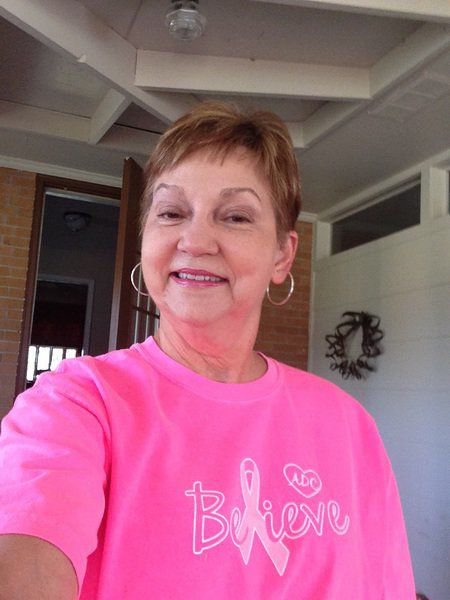Lakeland resident battles lymphedema
Published 9:00 am Tuesday, March 6, 2018

- Submitted PhotoGenese Conine, 71, is a breast cancer survivor, and has been diagnosed with lymphedema.
LAKELAND — “I still have no effects of the cancer except the lymphedema,” Genese Conine said. “It’s like being diabetic. Once you have it, you have it.”
A survivor of breast cancer, the 71-year-old Lakeland resident endured a modified radical mastectomy January 2001 during which most of her lymph nodes were removed from the breast, she said.
Following the removal, she said she went through chemotherapy and radiation. About a year later, she said she discovered she had developed lymphedema in her left arm.
Lymphedema is swelling that can occur in any part of the body, though it favors the arms and legs, said Brandi McKeown, certified lymphedema occupational therapist for Rehabilitation Services of Tifton.
It is caused by the removal of lymph nodes, trauma to legs or arms, abdominal surgeries or cancers and can be hereditary, McKeown said.
“The more lymph nodes they remove, the higher incidence of lymphedema is,” she said.
March 6 is recognized as International Lymphedema Awareness Day, McKeown said. Infections from the swelling are life-threatening.
“It is incurable; it’s only manageable,” she said. “You cannot cure lymphedema.”
Thirty percent of cancer patients who’ve had lymph nodes removed develop lymphedema, McKeown said.
She said one in eight people are going to develop some form of lyphedema in a lifetime. Conine is one of them.
“It affects you physically a lot because I have to consider things like, I’m not supposed to lift more than five pounds on that side of my body, and I don’t carry anything,” Conine said.
To treat the swelling, Conine wears a compression sleeve during the day time and keeps her arm covered. When she bathes, she utilizes a plastic covering to hinder any moisture from getting to the bandage.
She said she has to avoid the sun, be careful not to be bitten by insects, receive no scratches, or refrain from having blood drawn or having blood pressure taken using the affected area.
McKeown, who’s been treating Conine since 2003, provides a light superficial massage called Casley-Smith during hour-long therapy sessions.
“It’s actually meant to stimulate the lymphatic right below the skin,” McKeown said.
She said she has instructed Conine to utilize nighttime garments, refrain from overusing the arm or lifting anything and use the Flexitouch Home Massage System as part of a home program.
McKeown said Conine’s lymphedema was pretty significant when Conine first became her patient, prompting Conine to visit the therapy center three times per week.
Now Conine’s lymphedema is in the maintenance stage, and she only sees McKeown once per week for treatment, McKeown said.
Conine said she’d like to see more done regarding lymphedema, and she would also like for closer treatment facilities to exist.
“There needs to be more treatment resources,” she said. “I know at least two women in Valdosta who do not get treatment because they cannot afford it.”
Medicare only pays for patients treatment at facilities, McKeown said. Medicare will not pay for supplies such as bandages and compression garments, she said.
The Lymphedema Treatment Act is a proposal for Medicare patients to receive access to these supplies, and it is currently at the congressional level, McKeown said.
“I think it’s a wonderful act,” she said. “We need it in place as soon as possible.”
Conine said while Medicare pays a percentage towards her visits to see McKeown, her sleeves and bandages aren’t covered. She said she pays $75 for each sleeve she buys, and only gets about three months wear for one.
Amanda Usher is a reporter at The Valdosta Daily Times. She can be contacted at 229-244-3400 ext.1274.




